Filter by
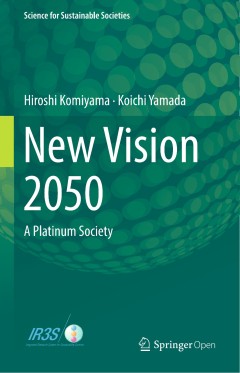
New vision 2050 : a platinum society
This book presents the "New Vision 2050," which adds the concept of the “platinum society” to the “Vision 2050”. The 20th century was a century in which energy led the development of material civilization, resulting in deletion of resources, global warming and climate change. What form should sustainable material and energy take to protect the Earth? The "Vision 2050" was established…
- Edition
- -
- ISBN/ISSN
- 9784431566236
- Collation
- xlix, 179p. : ill.
- Series Title
- -
- Call Number
- 338.927 KOM n
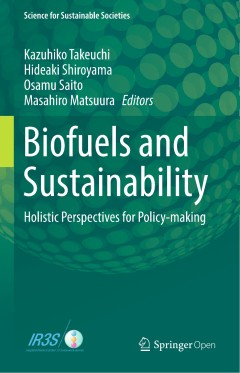
Biofuels and sustainability : holistic perspectives for policy-making
This open access book presents a comprehensive analysis of biofuel use strategies from an interdisciplinary perspective using sustainability science. This interdisciplinary perspective (social science-natural science) means that the strategies and policy options proposed will have significant impacts on the economy and society alike. Biofuels are expected to contribute to reducing greenhouse ga…
- Edition
- -
- ISBN/ISSN
- 9784431548959
- Collation
- vi, 265p. : ill.
- Series Title
- -
- Call Number
- 338.927 BIO b
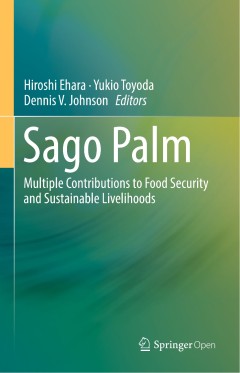
Sago palm : multiple contributions to food security and sustainable livelihoods
This book addresses a wide variety of events and technologies concerning the sago palm, ranging from its botanical characteristics, culture and use to social conditions in the places where it is grown, in order to provide a record of research findings and to benefit society. It discusses various subjects, including the sago palm and related species; differentiation of species of starch-producin…
- Edition
- -
- ISBN/ISSN
- 9789811052699
- Collation
- xiii, 330p. : ill.
- Series Title
- -
- Call Number
- 634.974 SAG s
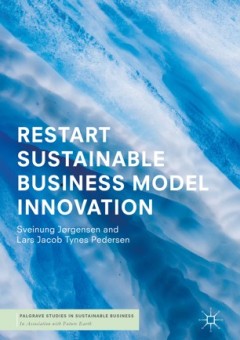
RESTART sustainable business model innovation
Taking the business model as point of departure, this open access book explores how companies and organizations can contribute to a more sustainable future by designing innovative models that are both sustainable and profitable. Based upon years of research, it draws together theoretical foundations and existing literature on the topic of sustainable business alongside case studies and practica…
- Edition
- -
- ISBN/ISSN
- 9783319919713
- Collation
- xxiii, 253p. : ill.
- Series Title
- -
- Call Number
- 338.927 JOR r
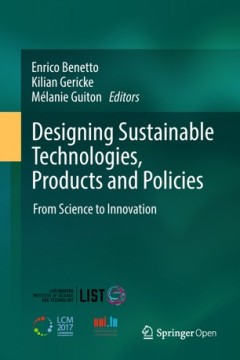
Designing sustainable technologies, products and policies : from science to i…
This open access book provides insight into the implementation of Life Cycle approaches along the entire business value chain, supporting environmental, social and economic sustainability related to the development of industrial technologies, products, services and policies; and the development and management of smart agricultural systems, smart mobility systems, urban infrastructures and energ…
- Edition
- -
- ISBN/ISSN
- 9783319669816
- Collation
- xiv, 520p. : ill.
- Series Title
- -
- Call Number
- 338.927 DES d
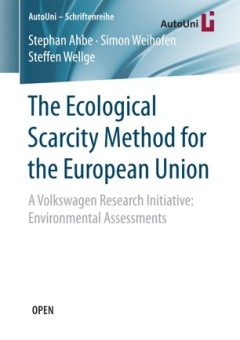
The ecological scarcity method for the European Union : a Volkswagen research…
This report transfers the Ecological Scarcity Method (ESM) to the EU and its 28 member states. It provides a powerful tool for unbiased environmental assessments in enterprises and surveys the current impacts and the targets published by environmental authorities, specifically the European Environment Agency. ESM assesses environmental impacts of manufacturing sites and production processes. De…
- Edition
- -
- ISBN/ISSN
- 9783658195069
- Collation
- xiv, 93p. : ill.
- Series Title
- -
- Call Number
- 333.714094 AHB e
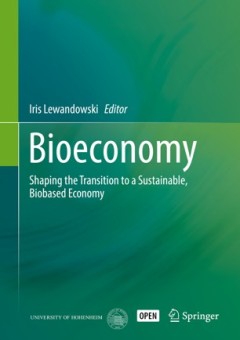
Bioeconomy : shaping the transition to a sustainable, biobased economy
This book defines the new field of "Bioeconomy" as the sustainable and innovative use of biomass and biological knowledge to provide food, feed, industrial products, bioenergy and ecological services. The chapters highlight the importance of bioeconomy-related concepts in public, scientific, and political discourse. Using an interdisciplinary approach, the authors outline the dimensions of the …
- Edition
- -
- ISBN/ISSN
- 9783319681528
- Collation
- vi, 356p. : ill.
- Series Title
- -
- Call Number
- 338.927 BIO b
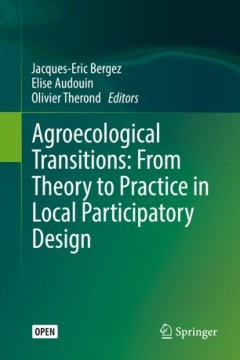
Agroecological transitions : from theory to practice in local participatory d…
There is wide agreement on the need to change the prevalent agricultural models, given their negative impacts and their incompatibility with current societal issues. Agroecological transition has been promoted as a potential solution to the ecological, social and economic problems generated by these models. It however involves a systemic, multi-scale and transdisciplinary process. Due to thi…
- Edition
- -
- ISBN/ISSN
- 9783030019532
- Collation
- xvi, 335p. : ill.
- Series Title
- -
- Call Number
- 577.55 AGR a
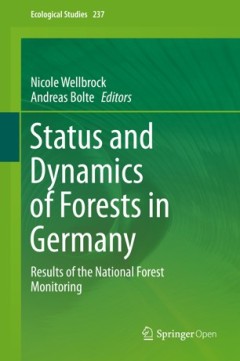
Status and dynamics of forests in Germany : results of the National Forest Mo…
Forest ecosystems in Central Europe are changing as a result of anthropogenic influences and changing climate conditions. As such, a large-scale monitoring programme was undertaken in order to understand the influence of site modification, deposition of air pollutants, and climate. This book presents the scientific findings of this study for Germany, including the major challenges with regar…
- Edition
- -
- ISBN/ISSN
- 9783030157340
- Collation
- x, 384p. : ill.
- Series Title
- -
- Call Number
- 634.90943 STA s
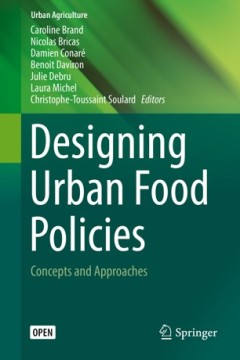
Designing urban food policies : concepts and approaches
This Open Access book is for scientists and experts who work on urban food policies. It provides a conceptual framework for understanding the urban food system sustainability and how it can be tackled by local governments. Written by a collective of researchers, this book describes the existing conceptual frameworks for an analysis of urban food policies, at the crossroads of the concepts of f…
- Edition
- -
- ISBN/ISSN
- 9783030139582
- Collation
- xx, 142p. : ill.
- Series Title
- -
- Call Number
- 363.8 DES d
 Computer Science, Information & General Works
Computer Science, Information & General Works  Philosophy & Psychology
Philosophy & Psychology  Religion
Religion  Social Sciences
Social Sciences  Language
Language  Pure Science
Pure Science  Applied Sciences
Applied Sciences  Art & Recreation
Art & Recreation  Literature
Literature  History & Geography
History & Geography